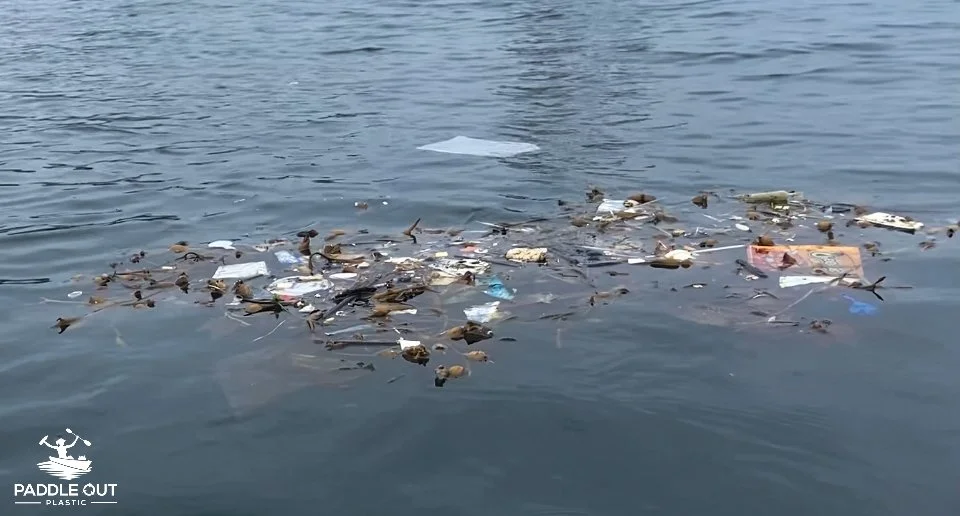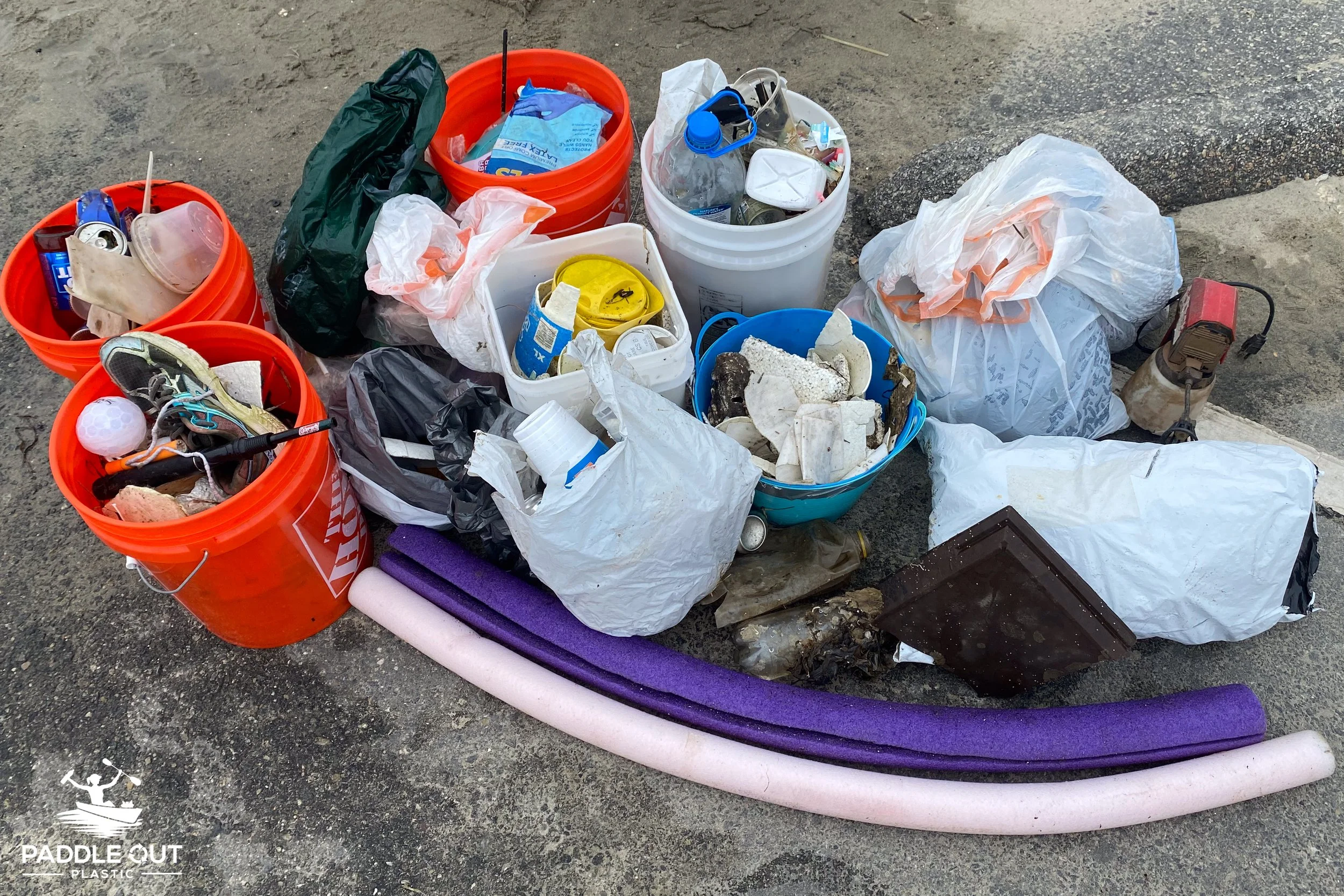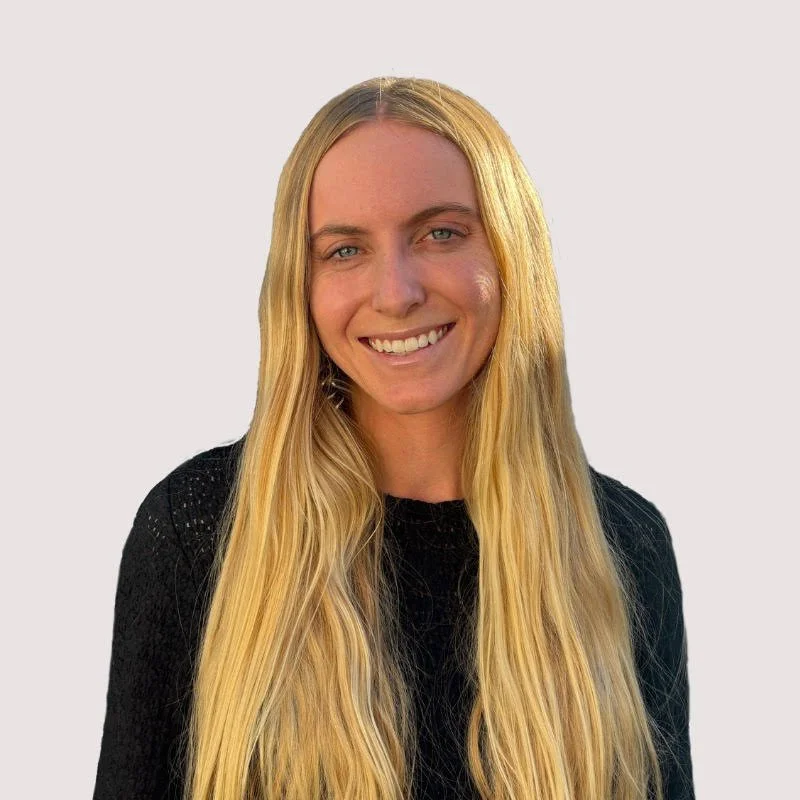Nonprofit Paddle Out Plastic Cleans up Local Oceans By Writer and Contributor Emily McGinn
A local nonprofit group has spent the last five years cleaning up the oceans and other waterways.
Eva Cicoria has been removing litter from the water for about 15-20 years. As a kayaker, she would pair her paddling hobby with her cause. Then, in June 2019 on World Oceans Day, she transformed her one-woman movement into an official nonprofit organization: Paddle Out Plastic.
Paddle Out Plastic is a 501(c)(3) nonprofit dedicated to the removal and elimination of waste — particularly single-use plastic — from waterways.
Cicoria was initially motivated to start cleaning up litter on the water herself because of the harm it causes to wildlife and ecosystems.
“Seeing a pelican with a hook in it and fishing line caught around it, [or] seeing sea lions with packing straps around their necks [inspired me to do this],” Cicoria says.
When she launched Paddle Out Plastic, she viewed it as a way to take her mission one step further.
“I thought if I have a logo and I have a name, it can start to bring some greater public awareness to this,” Cicoria says. “And I tried to get other people who are out there on the water to do the same and pick up, whether they were picking up with us or on their own. It was really about raising awareness initially, because I could continue to pick up trash, but I felt like I needed to raise awareness [as well].”
Paddle Out Plastic has a three-fold mission. They are best known for, quite literally, paddling out in kayaks and on paddleboards and picking up litter out on the water. However, they do more than that. Based on the litter they collect, they gather data by sorting the trash, counting it and logging it in a database sponsored by the National Oceanic and Atmospheric Administration.
“It's a big commitment of time,” Cicoria says. “Other organizations are collecting data from beach cleanups, but we're collecting data on what's actually making its way into our water. That's one of the things we're proud of.”
The organization’s third focus is awareness and education, both of the public and policymakers. They educate through social media posts, letter writing, speaking events at local organizations like the Port of LA organizations, and attendance of events like Earth Day events where they can engage with and inform the public.
The group usually paddles out to collect trash once a month, though Cicoria tends to go out at least once a week. She describes the group as “small but feisty,” with usually about a couple dozen people participating throughout the year. However, they have plenty of people who follow along with their mission on social media, with more than 1,000 followers on Facebook and nearly 2,500 on Instagram.
“We're people who like being out on the water, being active and getting a workout, but also doing something worthwhile,” Cicoria says. “And a lot of times, the people that come out with us are animal lovers, knowing that by removing this stuff in the water, we're removing hazards to marine life.”
Even now, Cicoria is seeing the effect of plastic waste on marine life firsthand.
“We're actually right now working on trying to get help for a sea lion that hangs out in LA Harbor and it's got a wound around its neck,” Cicoria says. “It looks like something embedded in its neck, and it's pus-filled and infected.”
To date, Cicoria reports that they have collected more than 300,000 pieces of trash in the past five years, which equates to more than five tons of waste. About 95% of that waste is plastic, and a third of the waste — about 99,000 pieces — has been Styrofoam.
These numbers are pushing Cicoria to continue to raise awareness. One of her goals moving forward is to advocate for the ban of Styrofoam, and she hopes to continue to share what current research is displaying about the troubling consequences of plastic waste. Research has indicated that microplastic particles are now found in food, water and even the human body — and the potentially concerning implications for human health are still being studied.
“It's not just an unsightly nuisance. It's not just harmful to wildlife,” she says. “Being produced from fossil fuels, it contributes to greenhouse gas emissions. It's also full of thousands of potentially harmful chemicals, additives like plasticizers and flame retardants that are endocrine disrupting and carcinogenic, and it turns out, we humans inhale it and ingest it unknowingly.”
Cicoria is aiming to do what she can to combat the issues facing both humans and the environment from plastic waste. She encourages others to get involved in whatever way they can, whether that is through educating themselves or others, or actually cleaning up the waterways themselves.
“Anybody with a kayak or a stand up paddle board can join us,” Cicoria says.
You can follow Paddle Out Plastic on Facebook @PaddleOutPlastic or Instagram @paddleoutplastic for information and upcoming events.
Bio:
Emily McGinn is a journalist based in the Los Angeles area. She enjoys reporting on and writing about a variety of topics from lifestyle to news, especially in her areas of specialty, environmental science and political science.












